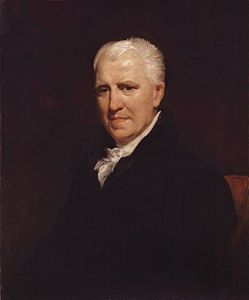Analysis of Meeting
George Crabbe 1754 (Aldborough) – 1832 (Trowbridge)
MY Damon was the first to wake
The gentle flame that cannot die;
My Damon is the last to take
The faithful bosom's softest sigh:
The life between is nothing worth,
O cast it from thy thought away!
Think of the day that gave it birth,
And this its sweet returning day.
Buried be all that has been done,
Or say that naught is done amiss;
For who the dangerous path can shun
In such bewildering world as this?
But love can every fault forgive,
Or with a tender look reprove;
And now let naught in memory live
But that we meet, and that we love.
| Scheme | ABABCDCD EFEFGGXX |
|---|---|
| Poetic Form | |
| Metre | 11010111 01011101 11010111 0101101 01011101 11111101 11011111 01110101 10111111 11111101 110100111 010100111 111100101 1101011 011101001 11110111 |
| Closest metre | Iambic tetrameter |
| Characters | 573 |
| Words | 108 |
| Sentences | 5 |
| Stanzas | 2 |
| Stanza Lengths | 8, 8 |
| Lines Amount | 16 |
| Letters per line (avg) | 26 |
| Words per line (avg) | 7 |
| Letters per stanza (avg) | 211 |
| Words per stanza (avg) | 53 |
Font size:
Submitted on May 13, 2011
Modified on March 05, 2023
- 32 sec read
- 36 Views
Citation
Use the citation below to add this poem analysis to your bibliography:
Style:MLAChicagoAPA
"Meeting" Poetry.com. STANDS4 LLC, 2024. Web. 27 Apr. 2024. <https://www.poetry.com/poem-analysis/14851/meeting>.


Discuss this George Crabbe poem analysis with the community:
Report Comment
We're doing our best to make sure our content is useful, accurate and safe.
If by any chance you spot an inappropriate comment while navigating through our website please use this form to let us know, and we'll take care of it shortly.
Attachment
You need to be logged in to favorite.
Log In